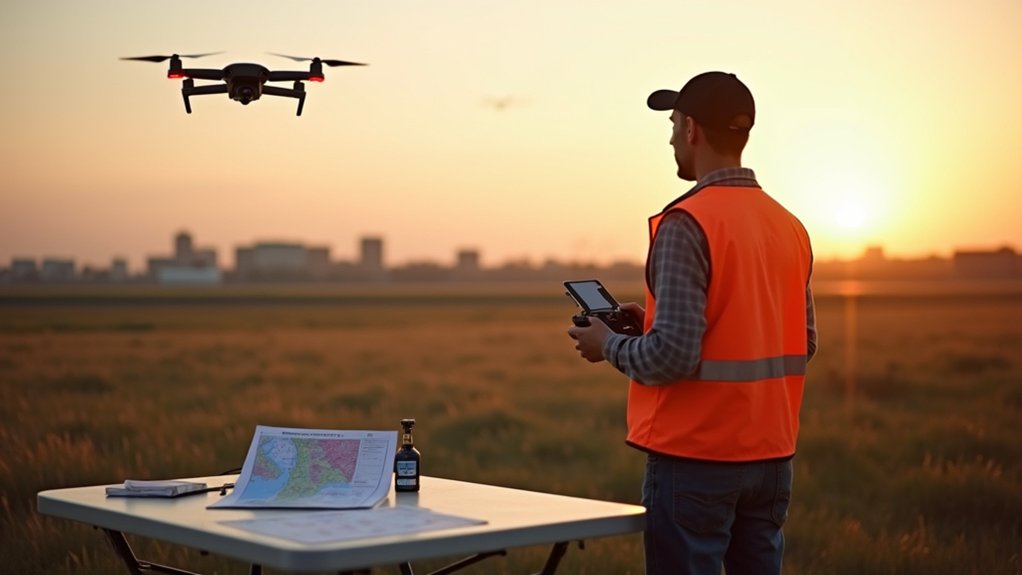
7 tips for choosing humanoid robot companies
Navigating the world of humanoid robot companies isn't easy—discover the seven essential tips you can't afford to overlook before making your choice.


If you’re considering flying a hobby drone, you may ask yourself why a license is necessary. It’s not just about adhering to the law it’s about understanding the guidelines that keep everyone safe and respectful in the skies. Mastering these rules before you launch your drone can help you avoid unexpected issues. By obtaining a drone license, you ensure that you’re equipped with the knowledge needed to navigate the skies responsibly. Remember, a well-informed pilot makes for safer airspace, benefiting both fellow drone enthusiasts and the general public. So, before you take off, make sure you’ve got your drone license and are fully prepared for a fun and secure flying experience.

Flying a drone for fun is exciting, but it’s essential to follow the legal requirements for recreational drone use.
If your drone weighs over 0.55 pounds, you must register it with the FAA and always have proof of registration on hand.
Another crucial step is passing the TRUST safety test to ensure you understand the rules and can fly your drone safely.
By staying compliant, you can enjoy the thrill of recreational drone use while staying within legal boundaries.
As a drone enthusiast, it’s crucial to navigate the skies with awareness and ensure airspace safety.
When flying your drone, remember that the airspace is shared with manned aircraft, other drones, and even birds. Obtaining a drone license ensures you understand airspace regulations, identify potential hazards, and prevent collisions.
Flying drones offers incredible opportunities to capture stunning high-resolution images and videos from the sky. However, drone enthusiasts need to be aware of privacy concerns to ensure a positive experience for everyone involved.
It’s crucial to understand that you might accidentally record private property or people without their consent. Licensing plays a pivotal role here, as it ensures you’re informed about the rules regarding privacy and the responsible handling of personal data.
By following these guidelines, you not only protect privacy but also strengthen the trust between drone pilots and the communities you fly in.
Whether you’re a seasoned pilot or new to the world of drones, understanding privacy and personal data protection is essential for a harmonious flying experience.
Flying drones responsibly requires a solid understanding of airspace regulations, especially when it comes to no-fly zones.
As a drone enthusiast, knowing where you can and can’t fly is crucial, as important as mastering your drone’s controls. You’ll often encounter no-fly zones around airports, military bases, and specific public events.
Therefore, always check local no-fly zone restrictions before launching your drone. Ignoring these no-fly zone rules can result in fines or even the confiscation of your drone.
Stay informed and ensure you fly within legal boundaries to enjoy your drone experience safely.
When you’re navigating the exciting world of drone technology, understanding where you can fly is just one piece of the puzzle.
Equally important is knowing what to do if something goes wrong. Imagine if your drone accidentally damages property or injures someone; you could be held liable.
That’s why having a drone license can be crucial, it shows you understand safety protocols, which can be beneficial when it comes to drone insurance.
In fact, some insurance companies require proof of licensing before they offer you drone insurance coverage.
Flying a drone can be an exciting hobby or a profitable venture, but it’s crucial to distinguish between recreational and commercial drone use.
When you fly a drone for pure enjoyment, it’s known as hobbyist or recreational flying. On the other hand, if you’re using your drone to generate income perhaps by capturing stunning aerial photographs for clients or selling breathtaking aerial footage, you’re involved in commercial operations.
It’s important to note that commercial drone use comes with its own set of regulations and licensing requirements. Understanding the difference between recreational and commercial drone use ensures you stay compliant and maximize your drone-flying experience.
Flying drones without proper authorization can lead to serious consequences, especially if you’re into technology and gadgets.
If you don’t follow the rules that differentiate hobbyist and commercial drone use, you might face hefty fines, have your drone confiscated, or even face legal action.
Drone enthusiasts should remember that flying without proper authorization puts your flying privileges at risk. Authorities take these violations seriously, so it’s essential to follow the correct procedures to stay compliant.
By doing so, you not only protect your investment in drones but also avoid unnecessary legal trouble.
Whether you’re using your drone for tech projects, apps, or smartphone photography, always make sure you have the proper authorization to fly.
Flying drones responsibly is crucial for creating a safe and trusted drone community.
Always stay updated on local drone regulations, and remember to avoid flying over people or private property. Respect no-fly zones to ensure everyone’s safety.
Sharing your drone knowledge with fellow pilots and reporting any unsafe drone behavior are great ways to contribute. Encourage responsible drone use in online forums, as this fosters a positive environment.
As a hobby drone pilot, obtaining a drone license is essential for safe and responsible flying. A drone license ensures you understand how to navigate restricted areas, respect privacy, and avoid legal or financial issues. Licensing helps you set a good example in the drone community. By getting a drone license, you’ll fly confidently, knowing you’re contributing to safer skies. Remember, a drone license is not just a requirement it’s a commitment to responsible drone piloting.

Navigating the world of humanoid robot companies isn't easy—discover the seven essential tips you can't afford to overlook before making your choice.

Take a look at the surprising price tags of 10 commercial humanoid robots and discover which features justify their cost—some will truly shock you.

Pioneering breakthroughs, humanoid robots are transforming technology in five surprising ways—discover how their impact reaches far beyond what you might imagine.

Meet the new caregivers—robots that could transform elderly care in ways you never imagined, but are they really up to the task?

Wondering how smart houses actually work and how you can make the most of them? Discover the secrets to smarter living inside.

Discover three clever lighting automation tips for smart homes and see which simple trick could transform your daily routine.